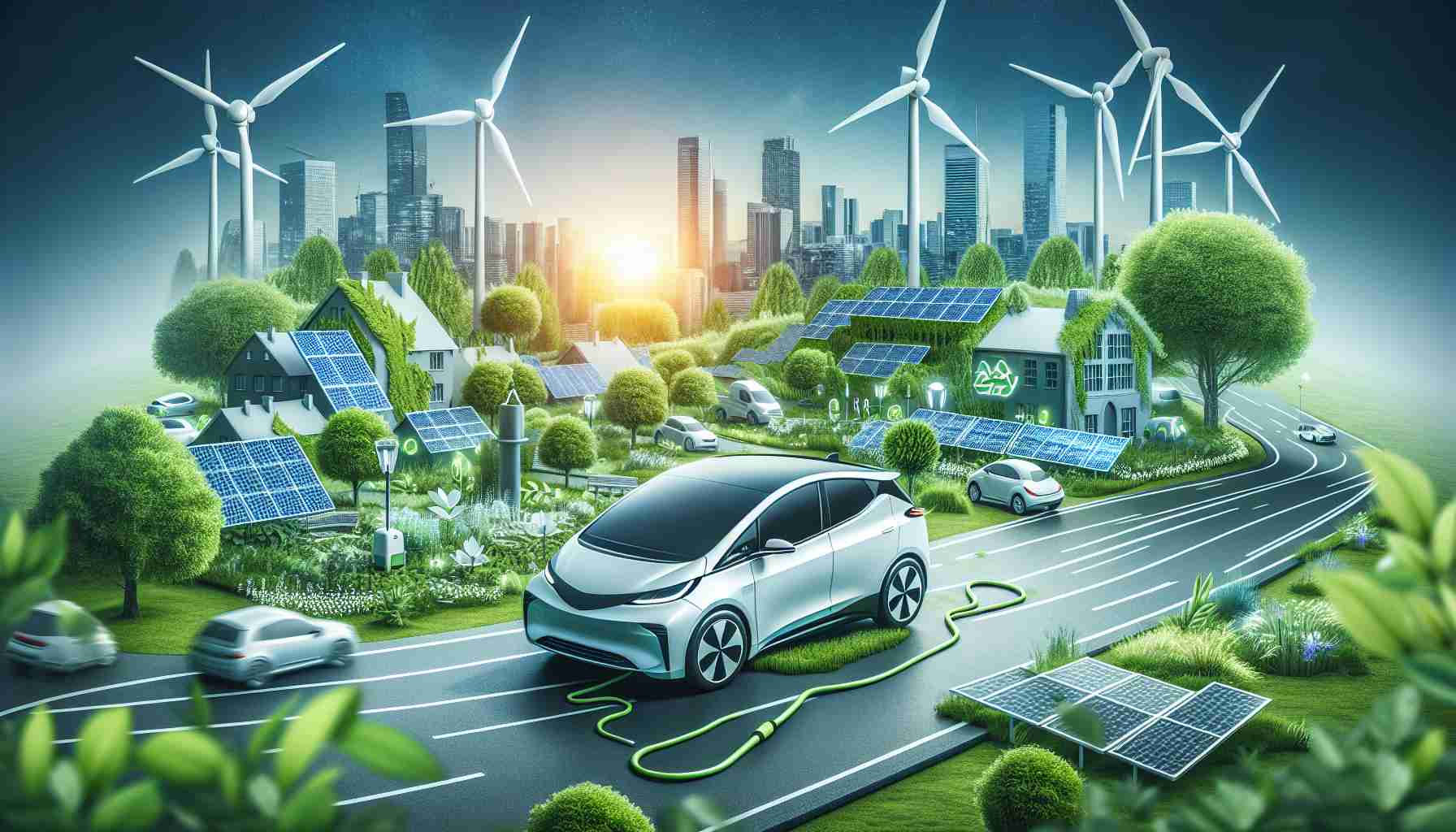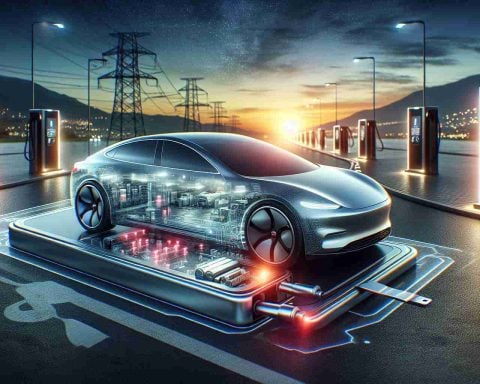- Keio Jidosha partners with REXEV to innovate urban mobility through electric vehicle (EV) car-sharing.
- The initiative aims for a 30% reduction in CO2 emissions in seven years, targeting net zero by 2050.
- EV car-sharing reduces costs and barriers to adoption while fostering maintenance expertise.
- The program operates within REXEV’s “eemo” franchise to optimize investment and minimize operational issues.
- A virtual power plant (VPP) scheme uses solar energy to charge EVs at off-peak times, enhancing grid efficiency.
- This venture highlights the intersection of technology, sustainability, and corporate responsibility.
Amid the bustling cityscape of Tokyo, a quiet revolution is unfolding. Keio Jidosha, a prominent mobility company, has taken a decisive step towards a carbon-neutral future through an innovative partnership with REXEV. This collaboration marks the dawn of a new era where electric vehicles (EVs) and intelligent management systems converge to redefine urban mobility.
High above the frenetic streets, two Nissan electric cars now quietly reside beneath elevated train tracks—part of a strategic initiative to usher in EV car-sharing within the Keio Group. The venture aims to slash CO2 emissions by 30% in seven years and achieve net zero by 2050. But why stop at conventional EV adoption? Car sharing presents a multifaceted advantage.
By sharing EVs across the group, costs—historically a barrier to EV adoption—dwindle. The endeavor also fosters the expertise to maintain these silent, efficient machines, paving the way for widespread integration in commercial fleets. Operating as a part of REXEV’s “eemo” franchise, Keio maximizes investment returns while minimizing operational headaches.
The heartbeat of this initiative beats in sync with a virtual power plant (VPP) scheme. Leveraging solar energy, surplus electricity charges these fleet vehicles at off-peak hours, contributing to a smarter, balanced grid. The system’s deeply integrated energy management combats peak demand surges, curtailing both costs and environmental impact.
Keio’s leap into EV car sharing with REXEV exemplifies a commitment not only to preserving the planet but also to enhancing operational efficiency. It’s a transformation where technology, sustainability, and innovation intersect, painting a hopeful picture of corporate responsibility in action. The future of mobility lies not just in moving forward but in moving wisely.
Revolutionizing Urban Mobility: Keio Jidosha and REXEV’s EV Initiative Sparks a Sustainable Future
Insights into Keio Jidosha’s Electric Vehicle Initiative
Keio Jidosha’s recent collaboration with REXEV marks a significant advancement in the realm of sustainable urban transportation. Here’s a deeper dive into the elements and potential impacts of this initiative that were not covered in the source article.
# How-To: Implementing an EV Car-Sharing Model
Keio Jidosha’s foray into EV car-sharing offers a template for other companies looking to embark on similar journeys. Essential steps include:
1. Fleet Acquisition: Start by selecting suitable electric vehicles that align with your operational needs.
2. Strategic Partnerships: Collaborate with technology providers like REXEV for integrated management and operational support.
3. Renewable Energy Integration: Establish solar power infrastructure and virtual power plant capabilities to enhance sustainability.
4. User Infrastructure: Develop robust charging and booking systems to ensure a seamless user experience.
# Pros and Cons of EV Car Sharing
Pros:
– Reduced Emissions: Significant decreases in CO2 output contribute to environmental goals.
– Cost Savings: Shared resources mean fewer vehicles per capita and lower operational costs.
– Enhanced Efficiency: Leverages existing infrastructure more effectively.
Cons:
– Initial Investment: High upfront costs for new technology and infrastructure.
– Limited Range: EV range limitations could impact usability for long-distance travel.
– Charging Infrastructure: Requires comprehensive development to meet demand.
# Market Forecasts and Predictions
The global EV market is projected to grow significantly in the coming years, aligning with Keio Jidosha’s strategy for ramping up EV adoption. By 2030, it’s estimated that EVs could account for more than 30% of all vehicles in urban areas.
# Security and Compatibility
Implementing a secure management system is crucial. Keio Jidosha is expected to deploy cutting-edge cybersecurity measures to protect data and ensure operational integrity. The compatibility of various EV models within a shared fleet also poses a challenge but can be mitigated through strategic planning.
# Sustainability and Innovations
Keio Jidosha’s initiative embodies sustainability by reducing reliance on fossil fuels and utilizing renewable energy sources. Innovative approaches such as smart grid integration and off-peak charging represent a forward-thinking approach to energy management.
# Use Cases and Applications
– Urban Commuting: Ideal for city dwellers requiring reliable transportation without ownership burdens.
– Corporate Fleets: Businesses can benefit from reduced costs and enhanced sustainability credentials.
– Tourism: Visitors can experience Tokyo’s offerings with minimal environmental impact.
For further details on the evolving mobility landscape and sustainability practices, visit these reputable sources:
– Tesla
– BWM Group
– Nissan Global
By understanding these supplementary insights, you’ll appreciate the broader context and implications of Keio Jidosha’s commitment to revolutionizing urban transportation through sustainable practices.


















